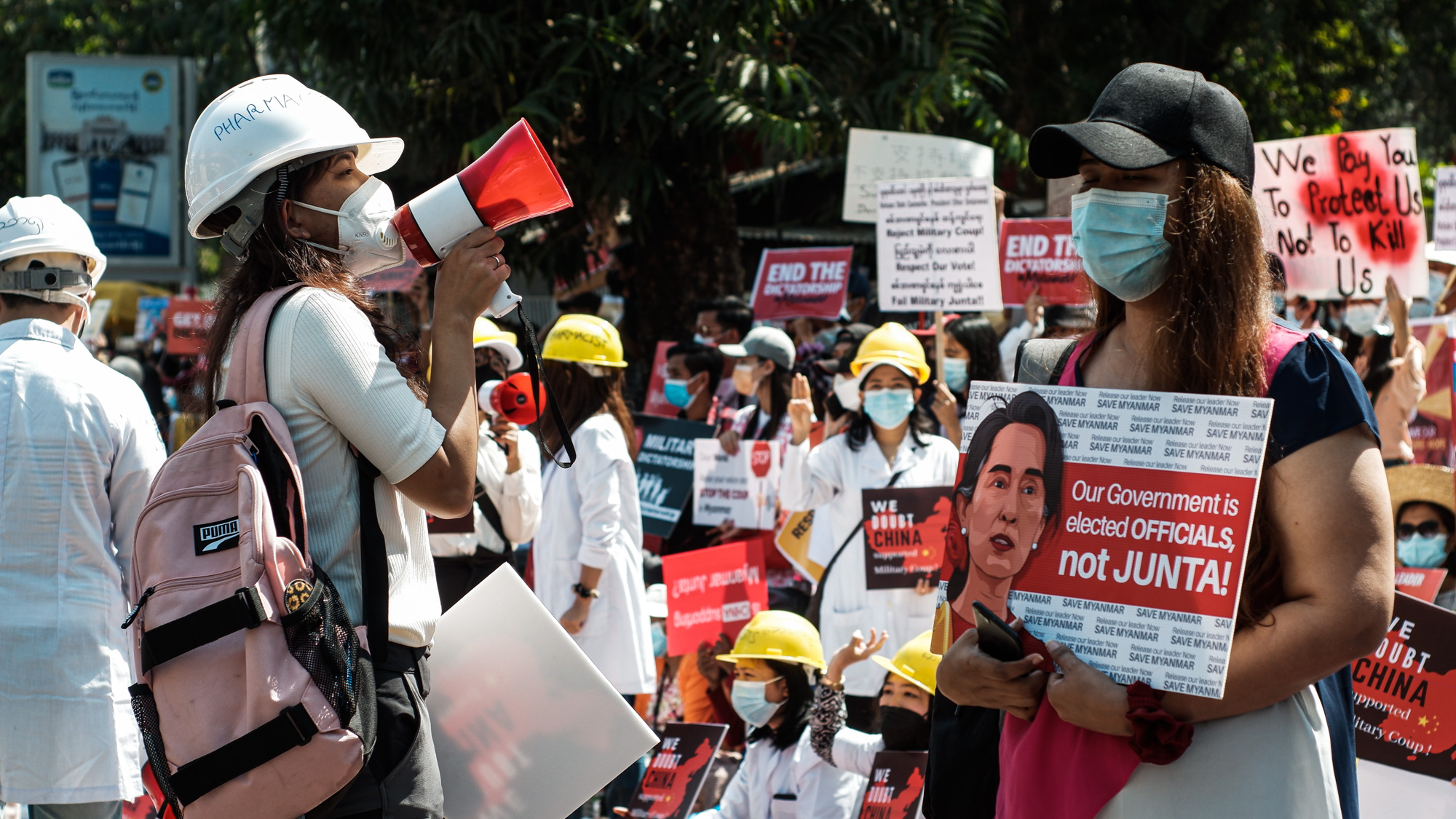Though we are in 2021, it seems that taboos continue to dictate what “women should or should not do.” In many Southeast Asian societies, taboos and beliefs about women play a significant role, affecting women’s lives privately and publicly. However, the momentum has changed as many women are taking to the streets to tackle misogynistic beliefs and bring down the patriarchy.
During their monthly period, women are not allowed to enter Burmese temples and shrines in Myanmar or visit Hindu ritual sites in Bali, Indonesia. Islamic practices in Malaysia and Indonesia also forbid menstruating women from practising ritual prayers. Furthermore, women in Thailand are discouraged from talking about or enjoying sexual activity, and participating in agricultural cropping activities during the menstruating period.
Much of this comes down to superstitions about women’s bodies being dirty. In 2021 however, feminist movements in Southeast Asia have seen unusual success by using the taboos of their oppressors against them. This article explores this recent strategy with a focus on Myanmar and Thailand.
In Myanmar, women use ‘sarong’ to fight the junta and patriarchy
Since the military coup on February 1st 2021, Myanmar security forces have killed more than 1,200 people, prompting nationwide protests. All over the country, thousands of women have taken to the streets to join anti-coup protests and call for gender equality—using superstition as a protest tactic.
In Myanmar, it is widely believed that men should not touch or walk under women’s clothing for fear that they will become weaker or that their holiness will be washed away. Women protesters therefore fight back the junta’s brutality by hanging sarongs, the large skirt-like sheet of fabrics used to wrap around the waist, underwear, and even sanitary pads to scare the military or police away. This tactic helped protect protesters from the Myanmar security forces as some were unwilling to walk under or even touch women’s clothes for fear that it would take their luck away.
Barricades during Myanmar Sarong protests in the Yangon region, March 2021. License: Maung Sun, CC BY-SA 4.0, via Wikimedia Commons.
By far, this has proven to be one of the most effective ways to show women’s resistance and fight against dictatorship in the country as of yet.
Later this year, on International Women’s Day, the sarong became an emblem of the movement. Thinzar Shunlei Yi, a Myanmar women’s activist, tweeted, “Our Sarong, Our flag, Our Victory. Women Sarong Revolution against masculine dictatorship in Myanmar,” to applaud the women of Myanmar for their courageous act.
Furthermore, prominent male activists and human rights defenders, including activist leader Maung Saungkha, also joined the sarong movement in celebrating women’s roles in their fight for equality. In the past, men have rarely talked about or participated in such movements. This is a significant step for the people of Myanmar to eliminate stigma and gender discrimination. As one can see, the harmful cultural beliefs towards women and their clothes have been shifted to a tool to take down the junta and patriarchy.
In Thailand, women got together in a “naked mob” to shut down society’s dress code
For decades, societies have been bossing around on how women should dress. In many cultures, including Thai, women are taught to not “dress in a provocative way” or “show too many parts of your body.” In 2018 for example, a Thai government official suggested that women should dress conservatively during Songkran—a Thai New Year festival to avoid sexual harassment. In recent years however, more and more women have come together to battle the issue, and in 2020 the group Feminist’s Liberation Front Thailand was formed to call for gender equality and liberation.
During nationwide protests calling for the resignation of the current prime minister Prayuth Chan-Ocha, the amendment of the constitution, and the reform of the monarchy, feminist groups and LGBTI+ communities also took part in the movement. In September 2021, Worawan Sae-aung, aka “Aunty Pao,” a 67-year-old protester, stripped naked in front of the Thai Police’s headquarter to protest against police’s violent tactics to disperse the protests. She now faces 12 charges for participating in the protest and “doing any shameful act in public.” Being inspired by “Aunty Pao,” feminist and LGBTI+ groups staged a “naked mob” a few days later to show their resistance against social norms and gender bias. In addition to political reforms, protesters also called for equality for all genders.
LGBTQI+ members staged a performance at the protest and called for gender equality, September 2020. Photo by Tanyalak Thongyoojaroen.
Time has changed, and there is no going back
As time goes on, the fight for freedom and equality continues. In Myanmar and Thailand, women join forces to tackle misogynistic beliefs and gender stereotypes online and offline.
The time is now to stand up for equality and eliminate practices and discrimination against women. This cannot be done overnight, and there’s still a long way to go. But as one can see, society is gradually changing, and we are on our way.




